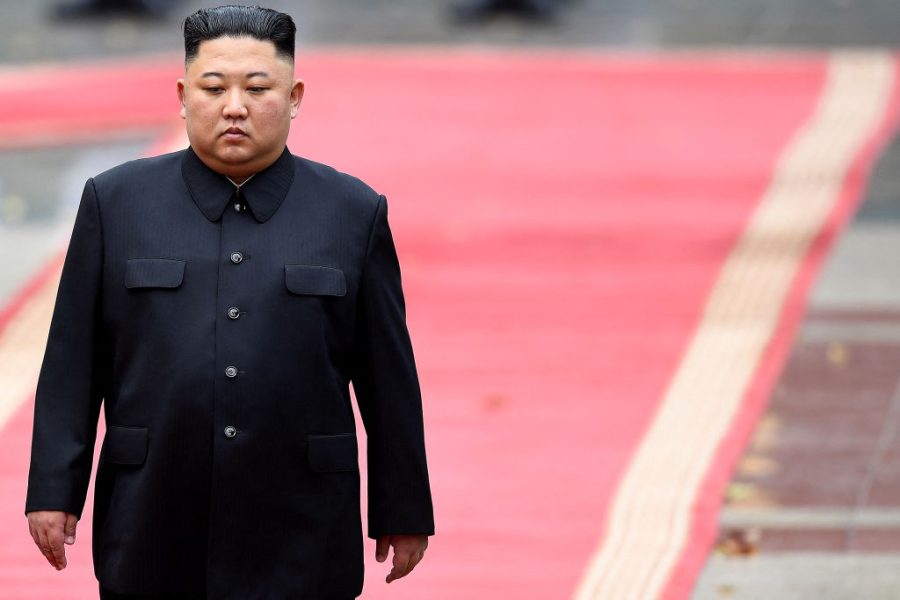If there’s one thing that a despot wants, it is to stay in power. North Korea’s totalitarian Supreme Leader, Kim Jong Un, is no exception. Not only does he seek to maintain the survival of his ruling regime, but Kim also yearns for North Korea to be recognised as a de facto nuclear-armed state. But whilst revolutions are rare in the nuclear-armed hermit kingdom, Kim wants to ensure that even the slightest seeds of dissent fail to be sown. Whether military elites or the North Korean youth, everyone must be kept in check. And how better to do so than by drafting a 300,000-strong youth ‘shock brigade’ to reconstruct flood-damaged areas.
The crimes in question amounted to watching South Korean dramas and listening to K-pop
Youth leagues are a common feature of socialist authoritarian regimes, whether the infamous Communist Youth League of China – which penetrates almost every stratum of society – to the Soviet Komsomol, which was officially called ‘the helper and reserve’ of the Soviet Communist party. For North Korea, the Socialist Patriotic Youth League, named after its Soviet counterpart, is a rite of passage. All North Koreans aged between 14 and 30 must join and pledge loyalty to Kim Jong Un. This amounts to a membership of around 5 million, just under one-fifth of the country’s total population.
Since its establishment in 1946, one of the youth league’s missions has been ‘socialist construction’. Earlier this week, North Korean youth shock brigades were put to work ‘at major theatres of socialist construction’ up and down the country, whether repairing areas ravaged by flooding last July and August; assisting in the building of hydroelectric power stations and coal mines; or constructing new ‘ideal streets’ in Pyongyang. All these activities formed part of what North Korean state media termed a ‘vigorous struggle’ on the part of these young people, who, the reports said, were ‘filled with enthusiasm to shoulder the heavy burden of the country’.
Though the North Korean youth league forms a vital part of Pyongyang’s domestic propaganda, it crucially reflects Kim Jong Un’s priority to ensure the continued loyalty of young North Koreans, a goal that only strengthened during the coronavirus pandemic. After the country had shut its borders in January 2020 –in what was, ironically, the most effective sanction to affect the country’s economy – Kim exploited this in order to close down the mental horizons of his population. The ‘Anti-Reactionary Thought Law’, enacted in December 2020, decreed how anyone caught ‘bringing in, viewing, and distributing reactional ideology and culture’ to North Korea would be punished, ‘depending on the severity’ of the so-called crime.
While the law affected all North Koreans, it particularly targeted the country’s youth. In April 2021, Kim Jong Un expounded that any ‘hairstyle, attire, and behaviour’ which went against North Korea’s state ideology would face severe punishment, and ordered the youth league to ‘ruthlessly crush’ youngsters seen adopting such traits. Only last September, videos were released of teenagers being publicly arrested and forced into making public confessions for ‘reactionary’ behaviour. The crimes in question amounted to watching South Korean dramas and listening to K-pop, the latter which Kim has deemed a ‘vicious cancer’, responsible for corrupting his people.
From its inception as an independent state in 1948, all three leaders of the Kim dynasty have reiterated how the country must prepare for war against the United States and South Korea. Under Kim Jong Un’s leadership, the rhetoric of nuclear war has featured prominently. As Kim seeks to tighten his regime’s ideological control over his 26 million-strong population, it is no surprise that recent satellite images have shown that existing political prisons are being rebuilt and expanded. This development suggests that the regime intends to increase the space available to imprison any so-called law violators.
As Kim Jong Un seeks to clamp down on any seeds of dissent, the North Korean leader’s war on information does not look to be a protracted one. Nearly five years ago, Pyongyang was afraid of coronavirus weakening the Kim regime by affecting the literal survival of its rulers and people. In today’s post-Covid world, Kim now seeks to immunise his people from a virus of a different sort: outside information, which threatens to erode the very domestic legitimacy upon which the 41-year old dictator relies.
Within this context, we can perhaps see why North Korea has been walking the tightrope with respect to its media coverage of events in what North Korean state media has called the ‘fascist dictatorship’ of South Korea. State media has certainly not held back in denouncing the suspended South Korean president, Yoon Suk Yeol, who, earlier this week, was indicted for insurrection following his aborted declaration of martial law in December last year. At the same time, Pyongyang will be wary of giving too much airtime to the shenanigans in Seoul. After all, protests, free and fair elections, and partisan politics are nowhere to be seen north of the demilitarised zone – and Kim wants to keep things that way.
Kim Jong Un is waging a culture war of his own, North Korea-style, but this will not stop the courageous North Korean people from opposing such brutal authoritarianism. With the rights of freedom of movement, religion, and thought remaining non-existent in the hermit kingdom, we in the West should not forget the inestimable value of these rights, as our own societies and institutions continue to be engulfed by ‘culture wars’, albeit of a different ilk. Freedom of speech must be protected and defended, before it is too late.







Comments